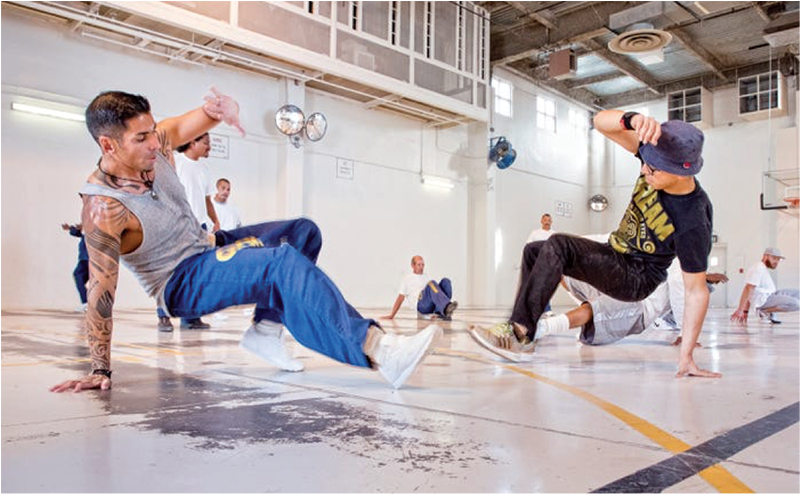
In October, nearly 50 San Quentin residents gathered to commemorate 50 years of Hip-Hop and to “chop it up” about when their love for rap had started.
The symposium, held in Chapel B, brought out the raw and unapologetic truth, highlighting the impact of Hip-Hop on incarcerated persons at San Quentin, as well as the influence rap has on urban culture worldwide.
For some incarcerated individuals, rap music provides a voice in their dissociation from society. The artistry of Hip-Hop plays an integral part in their rehabilitative development.
“The therapeutic value of writing and storytelling is underappreciated. The process allows us to cleanse our emotions as writers, laymen and street narrators,” resident Steven “Rashiyd” Zinnamon told San Quentin News.
He said he felt that the public often fails to understand the cognitive value of Hip-Hop. “Our emotions play a part in our actions and insight; it is invaluable.”
Pastor Eric Nobles from the Prison Fellowship program led the conversation as participants talked about the moment they first fell in love with Hip-Hop.
The consensus was that Hip-Hop relates stories of genuine human experiences, community, and truth. For many residents, their love for Hip-Hop culture began with break dancing, graffiti tagging, rhythmic wordplay, clever lyricism, and melodious beats.
“I always was a fan of rhyming,” resident Demond Lewis said. “The storytelling, fashion, and culture of Hip-Hop drew me in.”
Bernard “Raheem” Ballard fell in love with the art form in the early ’80s, while living in New York. “Hip-Hop was a new way to express myself, rhythmically and with body motions that matched the beats,” Ballard said.
During the discussion, many participants said Hip-Hop is a way of life and Hip-Hop artists use imagery, emotion, and authenticity. Themes commonly reflect realities such as inequality, economic struggles, and societal issues.
Resident Jamal “Mac Mal” Harrison said, “Rap … allows us to express our stresses, and it is about our culture.”
Resident Maurice “Face Nation” Buckley fell in love with the themes of joy, triumph, pain, and struggle in ’90s-era rap. “Hip-Hop culture was about having fun, dancing, and parties,” Buckley said.
Outside guests at the event included Prison Fellowship advocate Dennis Perry and rapper Mandon “Wild” O’Neal.
For Perry, a former San Quentin resident, the symposium brought back memories of San Quentin after years of freedom. “There was nothing like this when I was here,” Perry said. “This opportunity allows people to express themselves, who they are, where you came from and the things you enjoy.”
A “cypher” — a circle around the presenting artist — formed in the center of the room. Besides various residents, the group League of Extraordinary Gentlemen and “Wild” presented their music. “Wild” rapped his hit “Soldier” that he said lets the spirit do the talking. He encouraged the crowd to shout “Jesus” loudly and often.
Resident Samuel “Sound” Jackson performed “The Pelican,” which prompted the audience to rise from their seats. Inspiration for the song came from an experience at a bus stop. Waiting for public transit, he felt angry and intended to use an obscene gesture at a passing car, but saw a child in the backseat. At that moment, he reflected on the beauty in everything, which effected a change in his mindset.
Whenever he raps “Pelican,” the song touches the hearts of listeners as it tells a story that switches from hate to love.
Recently, Jackson experimented with using his chest to create a melodious beat; he also began embracing the way his voice sounded when digitally altered, to create a “felody,” or a melody created by a felon. For him, blending melody and verse resembles uniting a man — melody — and a woman — verse.
“Hip-hop is therapeutic,” Jackson said.